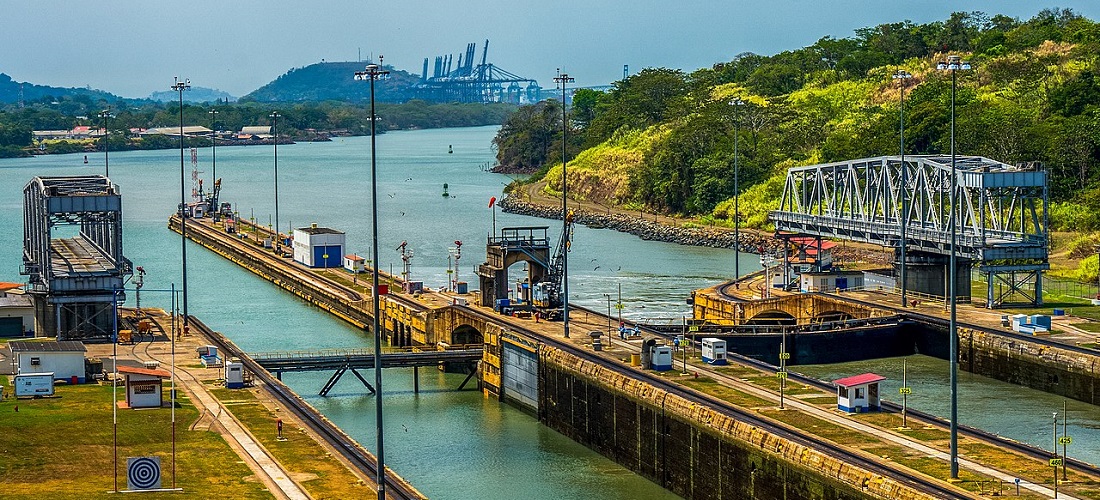
Panama Canal Jam Sends Ships Sailing Continents Out of Way
Dec, 06, 2023 Posted by Gabriel MalheirosWeek 202345
The Panama Canal, the century-old engineering marvel that revolutionized global trade, is being squeezed shut by drought and forcing shippers worldwide to face a painful choice to avoid jam.
They can wait in line for days or weeks, as low water levels limit the number of ships passing through the 50-mile waterway, carrying cars, consumer goods, fruit and fuel. They can pay millions of dollars to jump ahead in the queue, if a ship with a booked reservation drops out. Or they can sail an entire continent out of the way, sending their ships around the southern tips of Africa and South America, or through the busy Suez Canal.
Each choice adds cost, at a time when governments around the world are struggling to tame inflation. And the bottleneck will only worsen in the coming months as Panama enters its annual dry season, which typically begins in December and lasts until April or May.
“We face less capacity, more trips, higher costs and a less efficient supply chain,” said Paul Snell, chief executive officer of British American Shipping, whose company moves about 20,000 to 40,000 containers per year. “Everyone’s going to have to get creative and decide what they’re going to do.”
Gatun Lake, which forms a key stretch of the canal system and provides fresh water for its locks, saw little rain this year, as El Niño triggered a withering drought. So the Panama Canal Authority has ratcheted back the number of ships allowed to pass, from an average of 36 to 38 per day in the past to an expected 18 in February, half the normal amount.
The authority also reduced draft levels — how low a vessel can sit in the water — meaning some ships must carry less cargo. Even if the rains return on time next year, traffic congestion and draft restrictions will linger long into 2024.
Shipping companies are trying to pass along the extra costs to their customers. Hapag-Lloyd AG, Mediterranean Shipping Co. and Maersk all have announced new Panama-related surcharges in recent months. Economist Inga Fechner of ING Research said the effect on commodity and consumer prices has been muted by sluggish global demand. But the higher shipping costs will have a trickle-down effect in the long run, ultimately hitting consumers.
“It’s getting more costly, and looking for alternative routes will increase costs and maybe also weigh on prices in the end,” she said.
Oil and gas vessels, container ships hauling all manner of cargo, and grain carriers dominate traffic through the canal. The US is a major exporter of grains — soybeans, corn, wheat — to Asia, much of it typically leaving the Gulf Coast and traveling through Panama. But low water levels on the Mississippi River have already prompted some American growers to put their grain on trains to the Pacific Northwest and ship it to Asia from there.
Enrico Paglia, research manager at shipping services firm Banchero Costa, said overall US grain exports to Asia have fallen 26% this year compared to 2022, and grain flows through the canal have decreased 37% percent.
Should the canal bottleneck worsen, it’s likely other major grain exporters such as Brazil, Ukraine and Russia may step in to fill the gap for US products in Asia, Paglia said. Already, Brazilian grains have been more actively traded because of the canal’s increased restrictions, he said. “So, potentially, US grain exporters will be hit hardest by the disruption to trade flows,” Paglia said.
“Considering we are going to reach our peak of season at the peak of the problem in the canal, this affects us importantly,” he said.
Nikolay Pargov, chief revenue officer for container shipping platform Transporeon, said container ship operators are already booking alternative routes to avoid the canal for 2024. The rigid routes of container ships – which for some shipping companies have thousands of customers to consider for each vessel – make it more difficult to re-route them at the last minute.
“For shippers, they need to accept the longer transit times, and the financing of it,” he said.
Source: Bloomberg News
Click here to read the original news piece: https://www.bloomberg.com/news/articles/2023-12-04/panama-canal-bottleneck-prompts-detours-and-could-boost-inflation?utm_source=website&utm_medium=share&utm_campaign=copy
-
Ports and Terminals
May, 19, 2021
0
Asia Shipping bets on the automotive segment in 2021
-
Sugar and Ethanol
Mar, 11, 2025
0
Brazil in talks to expand U.S. sugar export quota
-
Shipping
Jan, 11, 2023
0
A.P. Moller – Maersk announces new executive leadership team
-
Trade Regulations
Jul, 16, 2020
0
Peru files complaint with WTO over Brazil’s import tax levels on PET imports



